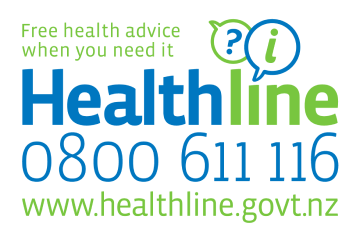Laxatives
Laxatives
Laxatives are medicines that help the body to get rid of poo. They are an essential part of the treatment of long-lasting constipation and soiling.
Key points to remember about laxatives
- laxatives are medicines that help the body to get rid of poo
- your child should aim for 1 soft formed poo that is not painful to do, every day
- laxatives are necessary until the body can manage a daily soft poo without help
- children with hard or impacted poo sometimes need a bowel washout
What are laxatives?
You might like to check the constipation page first
You can also read general information about constipation treatment
Laxatives are medicines that help the body to get rid of poo. They are an essential part of the treatment of long-lasting constipation and soiling. Most are available to buy at a pharmacy but it may be better to go to your family doctor first. Your doctor can give you advice about the best laxative for your child and how much to give them. Your doctor can also give you a prescription which usually means you won't have to pay for the laxative.
How long should my child take laxatives?
For as long as it takes. Children often need laxatives for months to years rather than weeks.
Remember that the purpose of laxatives is to allow your child to develop a normal habit of pooing regularly.
Ideally, your child should aim for 1 soft formed poo that is not painful to do, every day. Laxatives are necessary until the body can manage this without help. You may need to adjust the dose over time, but it is important to continue the laxative treatment.
Often children get sick of taking medicine, or dislike the taste. Try to make the medicine taste better by putting it with milk or juice, or ask your doctor or nurse about an alternative laxative. Incentive or 'star charts' can be a good way of encouraging your child to take medicine regularly.
How do laxatives work?
There are 3 ways laxatives for childhood constipation work:
- some soften the hard poo and make it easier to do (poo softeners)
- some help the bowel push the poo out (stimulants or emptiers)
- some wash the bowel out completely
Which laxatives are available?
Lactulose, sodium picosulphate and macrogol are the most common and most effective medicines for children with constipation.
Lactulose - a poo softener
Lactulose is a liquid. It is the most common medicine for constipation in children. It may taste better if you chill it or mix it with some juice or milk. Make sure your child brushes their teeth after their lactulose.
Sodium picosulphate - a poo softener and for bowel washout
Sodium picosulphate is a liquid medicine that you give to your child as drops. It's tasteless and colourless - it can be easier for your child to take this compared with other laxatives. If you're using this as a bowel washout, make sure to only do this after talking to your doctor and following their instructions.
Read about sodium picosulphate
Macrogol - a poo softener and for bowel washout
Macrogol is a powder you mix with liquid. It is particularly good for children with very hard or impacted poo. If you're using this as a bowel washout, make sure to only do this after talking to your doctor and following their instructions.
Docusate/poloxamer - a poo softener
Docusate/poloxamer can come as a capsule, tablet or drops. The drops are useful for children under 3 years of age. Docusate/poloxamer is useful in babies and in children with mild constipation.
Magnesium hydroxide mixture 8% - a poo softener and mild stimulant
Because the pharmacist has to make the mixture, it may take a while to be ready.
These are useful for treatment of constipation in some situations but are not recommended for long-term use unless under medical supervision.
Senna - a stimulant
Senna comes as a tablet. Your child may have diarrhoea or stomach cramps if the dose is high. Giving senna at night may reduce cramping and encourage a poo in the morning. Your child shouldn't take senna long term.
This page last reviewed 07 March 2022.
Do you have any feedback for KidsHealth?
If you have any feedback about the KidsHealth website, or have a suggestion for new content, please get in touch with us.
Email us now